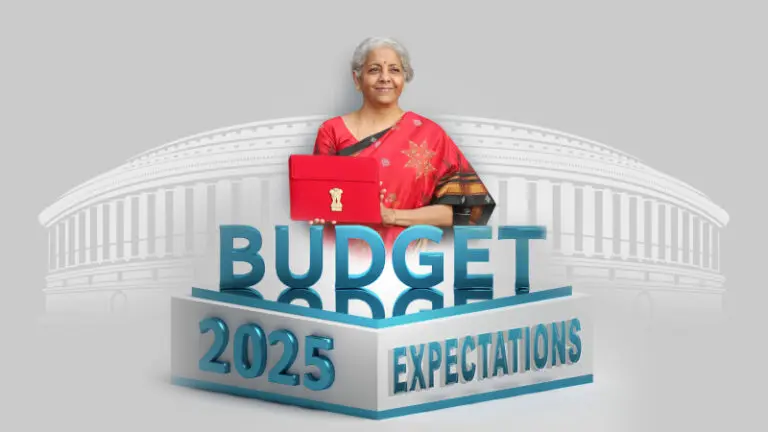
With the Union Budget 2025 around the corner, various stakeholders are hoping for specific reforms that can address the immediate challenges and help the economy in sustainable growth. Here are some of the key things that are expected from the government during this year’s union budget:
Relief in Income-Tax Slabs: Middle-class taxpayers, especially those earning up to ₹15 Lakh, seek income tax reduction. Individuals earning ₹7 Lakh to ₹15 Lakh are taxed at 20% to 30%, leaving little disposable income for savings and consumption. Rationalizing these slabs would put more money in customers’ hands, increasing demand and overall economic activity. Otherwise, the government could also focus on increasing the investment limit under section 80C, which has been stuck at Rs 1.5 Lakh for several years now.
Reinstatement of Indexation Benefits: In 2023, the government has decided to remove the indexation benefit from debt mutual funds, significantly impacting the attractiveness of these investment instruments. Earlier, long-term capital gains from debt funds were subject to a 20% tax with indexation benefit, which adjusted the purchase price for inflation and reduced the taxable gains.
Therefore, the shift has removed the tax efficiency that made debt mutual funds a preferred choice for long-term investors. Reinstating this benefit will incentivize retail participation in debt funds.
Reduction of GST on Health Insurance Policies: Among the developing nations, India’s health insurance coverage is the lowest. One of the most important demands from the sector has been a reduction in GST rates on health insurance policies, which currently is 18%. Due to high premiums, many middle-class families refrain from buying adequate health coverage. If the GST rates are reduced to 5% or 12%, this will significantly reduce the cost of insurance premiums, allowing the middle class better accessibility to health insurance. This move would also be in line with the government’s goal of universal health coverage under Ayushman Bharat.
Simplification of Capital Gains: The Finance Minister could grab the opportunity to simplify the capital gain tax structure in Budget 2025. This approach can enhance investor confidence and prompt long-term wealth creation. The current framework, while effective in its wide objectives, can benefit from better clarity and uniformity. A simple and uniform tax policy could draw more ordinary investors to financial markets, allowing them to diversify their portfolios while also contributing to the financialization of savings.
Long-term Investment Incentives: For encouraging long-term wealth creation, as part of an economic objective, the government could provide additional tax benefits for equity mutual funds that are held beyond a period of 7 or 8 years. This may be either by implementing lower LTCG rates or higher exemption limits for such long-term holdings. Implementing such policies may foster disciplined, long-term financial planning among retail investors.
For feedback and suggestions, write to us at editorial@iifl.com
Related Tags

Invest wise with Expert advice
![]() IIFL Customer Care Number
IIFL Customer Care Number
(Gold/NCD/NBFC/Insurance/NPS)
1860-267-3000 / 7039-050-000
![]() IIFL Capital Services Support WhatsApp Number
IIFL Capital Services Support WhatsApp Number
+91 9892691696
IIFL Securities Limited - Stock Broker SEBI Regn. No: INZ000164132, PMS SEBI Regn. No: INP000002213,IA SEBI Regn. No: INA000000623, SEBI RA Regn. No: INH000000248

This Certificate Demonstrates That IIFL As An Organization Has Defined And Put In Place Best-Practice Information Security Processes.